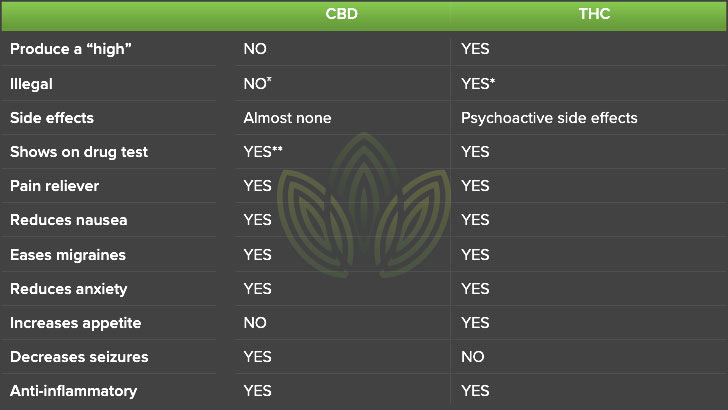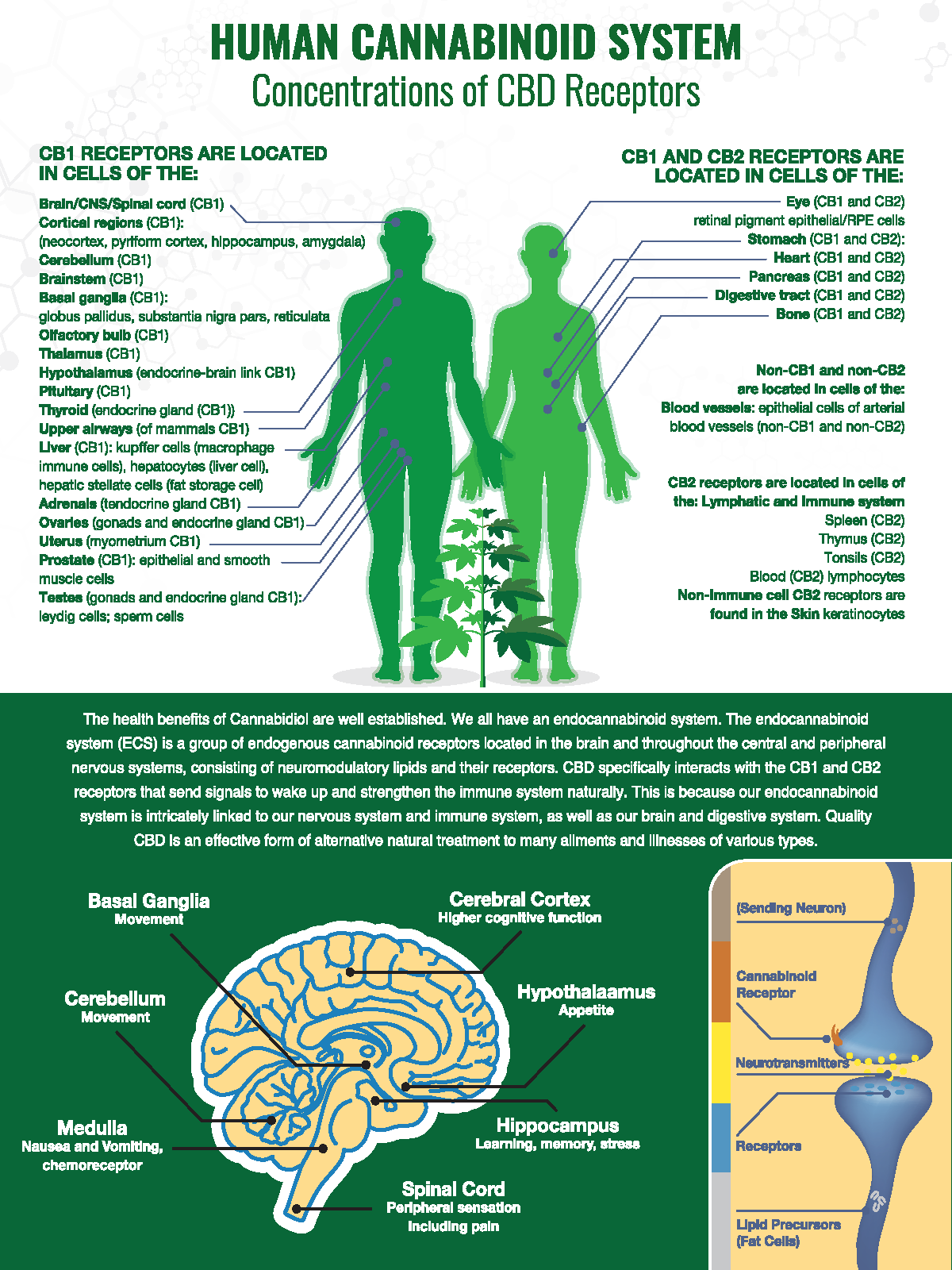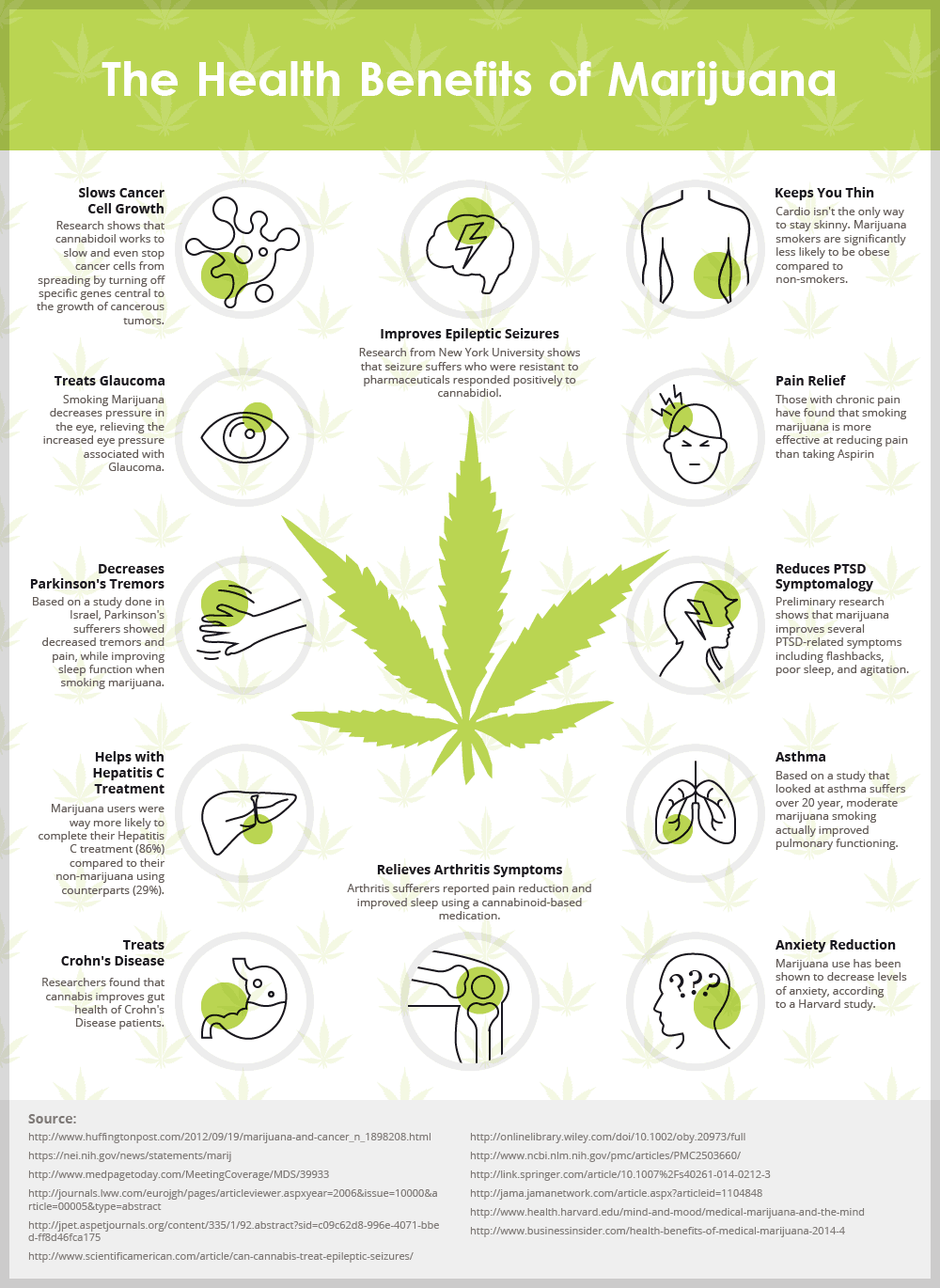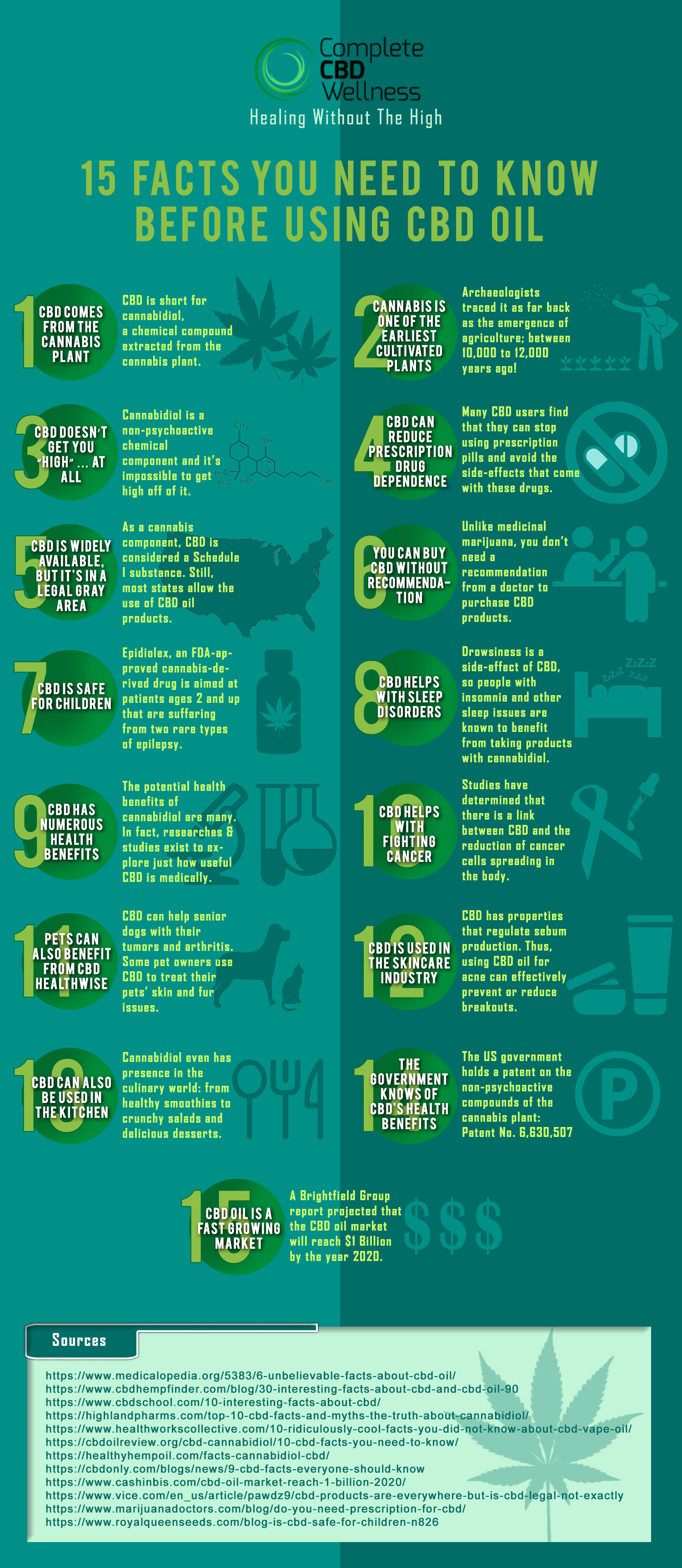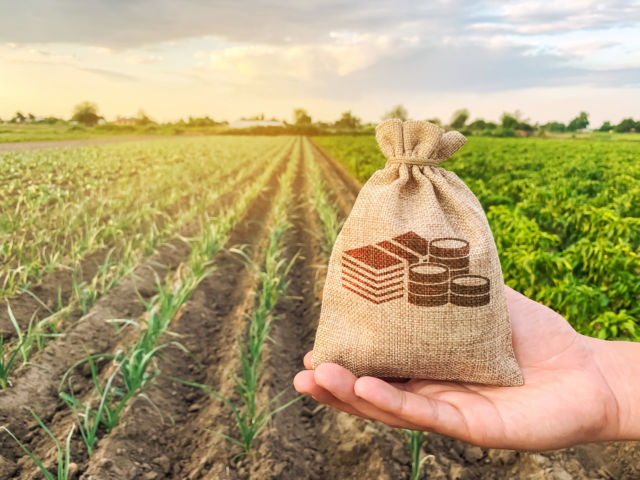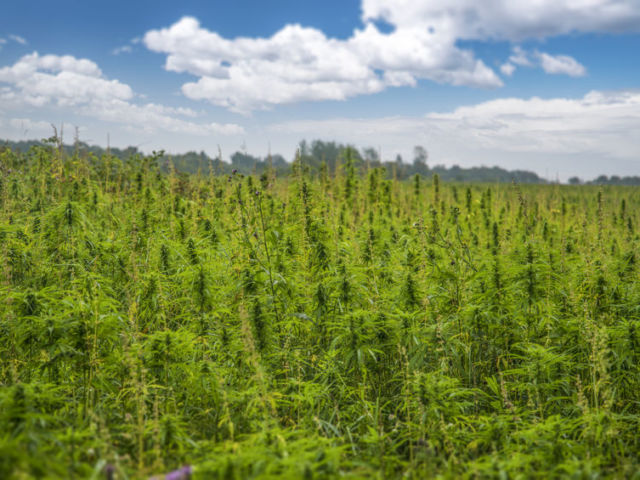Unfortunately, there exists a lot of misinformation surrounding both CBD & THC, propagated in part by interests that seek to promote one substance over the other. Cannabidiol (CBD) and Tetrahydrocannabinol (THC) are the two most abundant Cannabinoids found naturally within the Cannabis plant.
…Classified as Phyto-Cannabinoids, both CBD & THC interact upon different Physiological Systems
at the cellular level within our body. Both CBD and THC have a wide range of applications and are similar at the molecular level. This has led the public to often confuse them, and even the scientific community believed that CBD and THC
were in fact the same substance until relatively recently. However, the chemical properties of CBD and THC vary widely enough that THC is classified as a Psychotropic drug that is strictly controlled by federal authorities, while CBD is regarded as legal and safe worldwide.
The issues of legality for both CBD and THC in the United States are evolving regularly as several states have made recreational use of marijuana and THC legal. It still remains illegal federally. The laws are changing; be familiar with the laws in your state. In states where marijuana is legal for recreational or medical purposes, you should be able to buy CBD legally. In some states, legislatures have passed laws that make CBD for medical purposes legal. CBD does not need to be made from marijuana and is legal when made from hemp.
Before you try to buy either product, be aware of your state’s laws. If you possess cannabis-related products in a state where they’re illegal or don’t have a medical prescription in states where the products are legal for medical treatment, you could face legal penalties.
CBD and THC are the two most abundant of the many cannabinoids found in cannabis. They both interact with the endocannabinoid system but elicit different natural effects.
CBD, was one of the first cannabinoids scientists discovered and is, today, one of the most researched compounds in the cannabis plant.
CBD is non-psychoactive and is responsible for many of the significant medical and therapeutic benefits of cannabis.
THC is the chemical that produces the euphoric, stimulating sensations from cannabis use we call being “high.”
Medical, health, and wellness users tend to put an emphasis on CBD, while recreational consumers tend to favor THC.
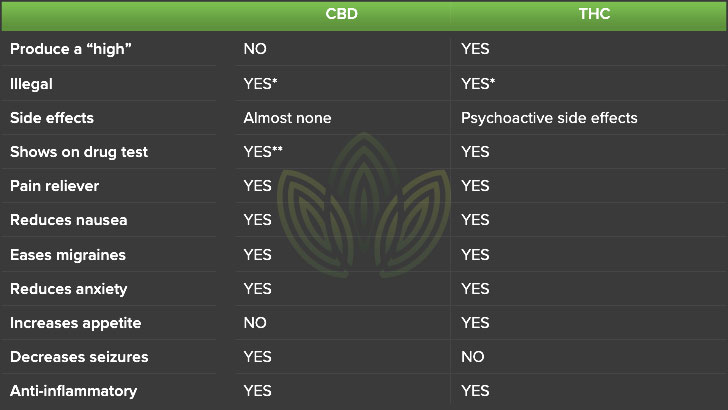

“Antidepresent-like and anxiolytic-like effect of cannabidol:a chemical compound of cannabis sativa” in CNS& Neurological Disorders- Drug Targets (2014)
“The role of the endocannabinoid system in atheroscierosis” in the Journal of Neuroendocrinology (2008)
Cannabidiol for neurodegenerative disorders: Important new clinical applications for this phytocannabinoid? In The British Journal of Clinical Pharmacology (2013)
“Cannabidiol CBD and its analogs a review of ther effects on inflammation.” In Biorganic & Medicinal Chemistry (2015)
“Cannabinoids and pain” In the handbook of experimental pharmacology (20017)
“Cannabinoid receptors and the regulation of bone mass” in British Journal of pharmacology (2008)

Contrary to popular belief, TAKING HIGH-QUALITY CBD PRODUCTS WILL NOT RESULT IN A POSITIVE DRUG TEST. Unfortunately, this misconception stems from poor quality CBD products, which can be contaminated with higher amounts of THC then listed on the label. This contamination has resulted in many occasions where someone shows positive on drug test for THC. It is for this reason, as well as many additional safety and efficacy reasons, that it is crucial to only use high quality, lab tested, and accurately labeled CBD products. These are the standard of products found at Treevana Wellness.
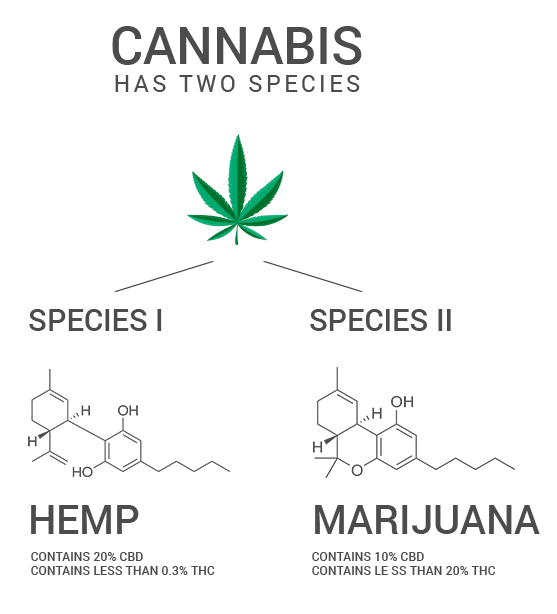

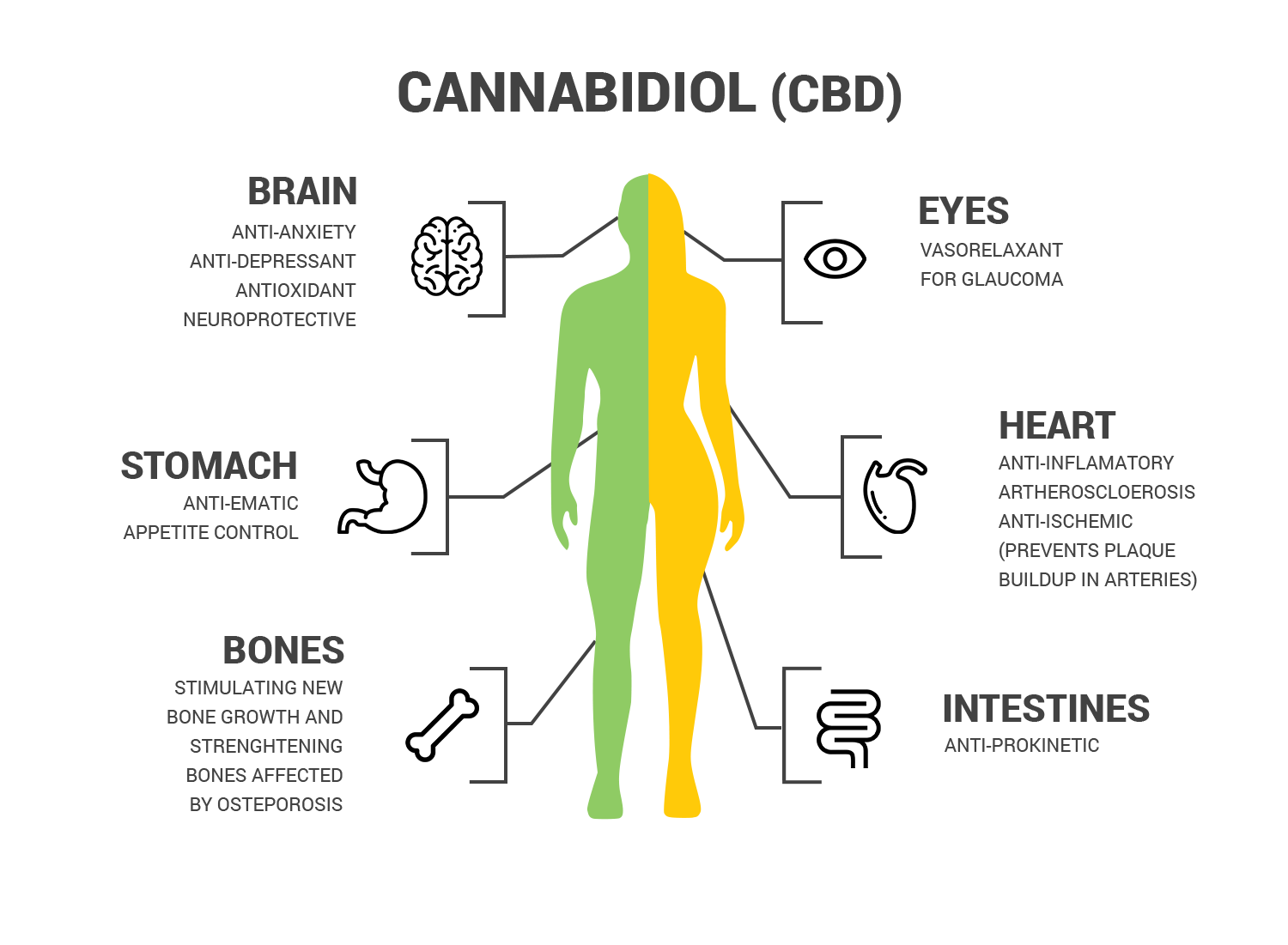

Get the latest updates on cannabis legalization, politics and technology, as well as developments in medical and recreational marijuana news from around the world.
When people think about marijuana, they typically think about things like medical CBD or recreational smoking. However, there are tons…
A recent announcement declared that the NFL would donate $1 Million towards research grants investigating pain management. This money could…
As a society, we came a long way from the Stone Age. Modern medicine is almost unrecognizable from its foundation of bloodletting…

Nature’s Wellness and Healing Solution.



